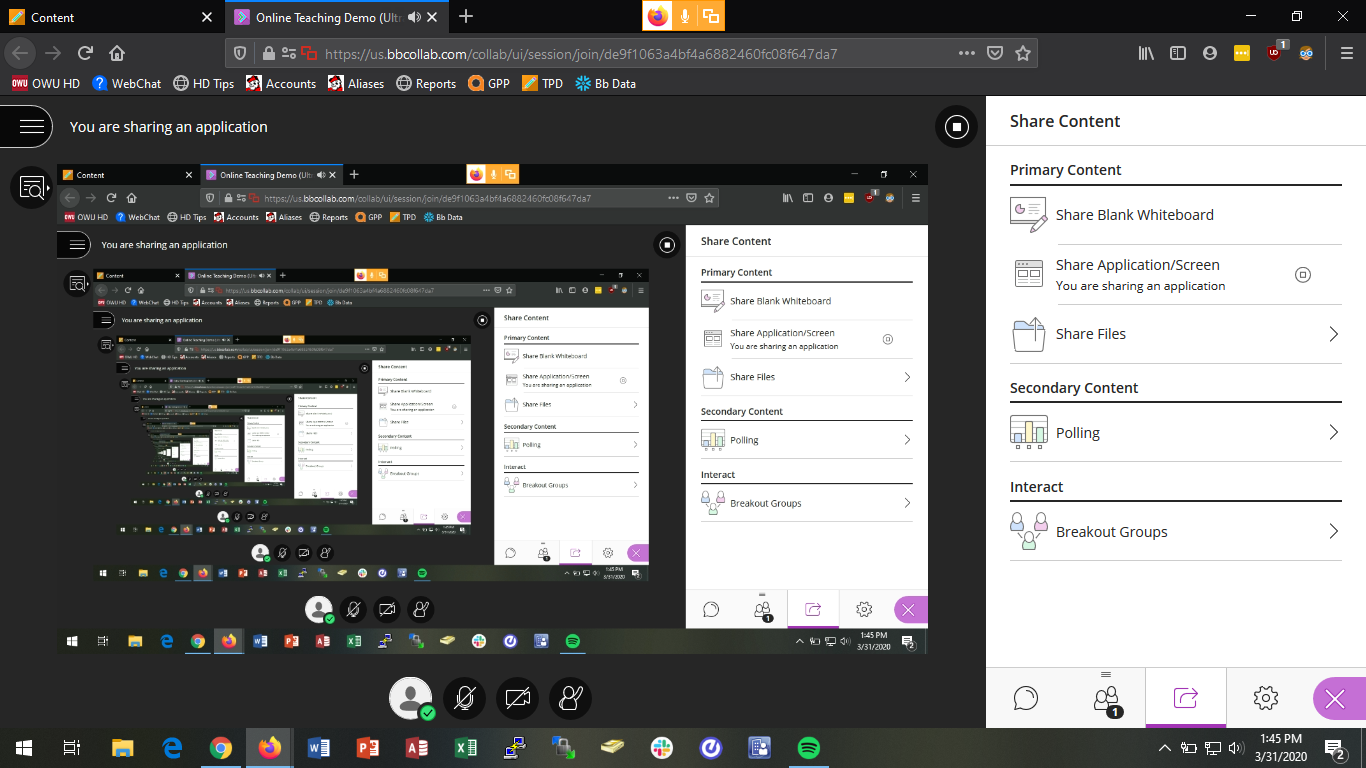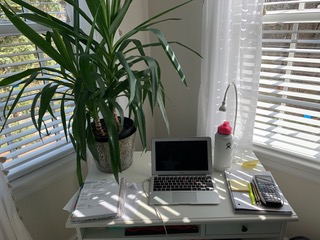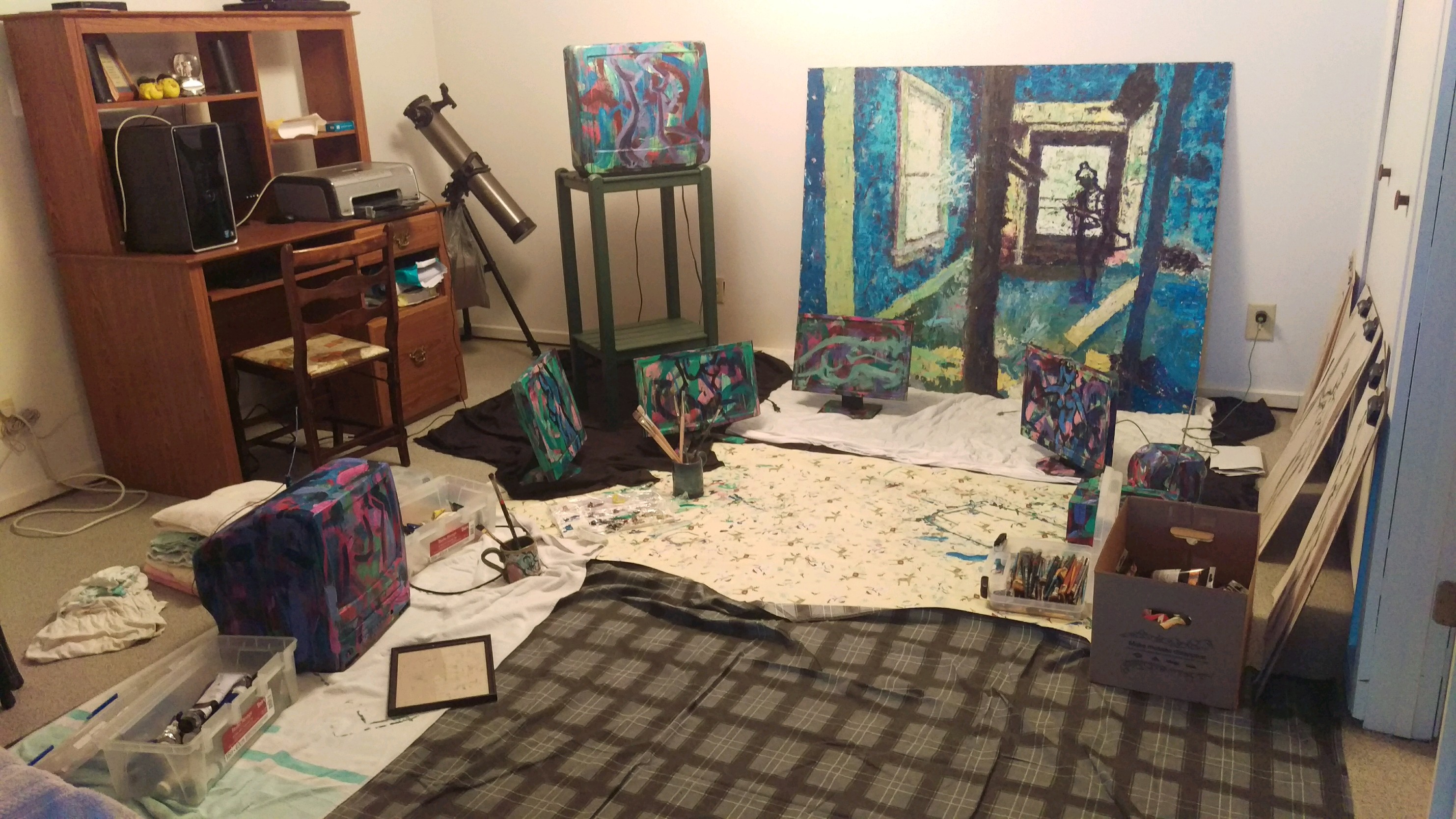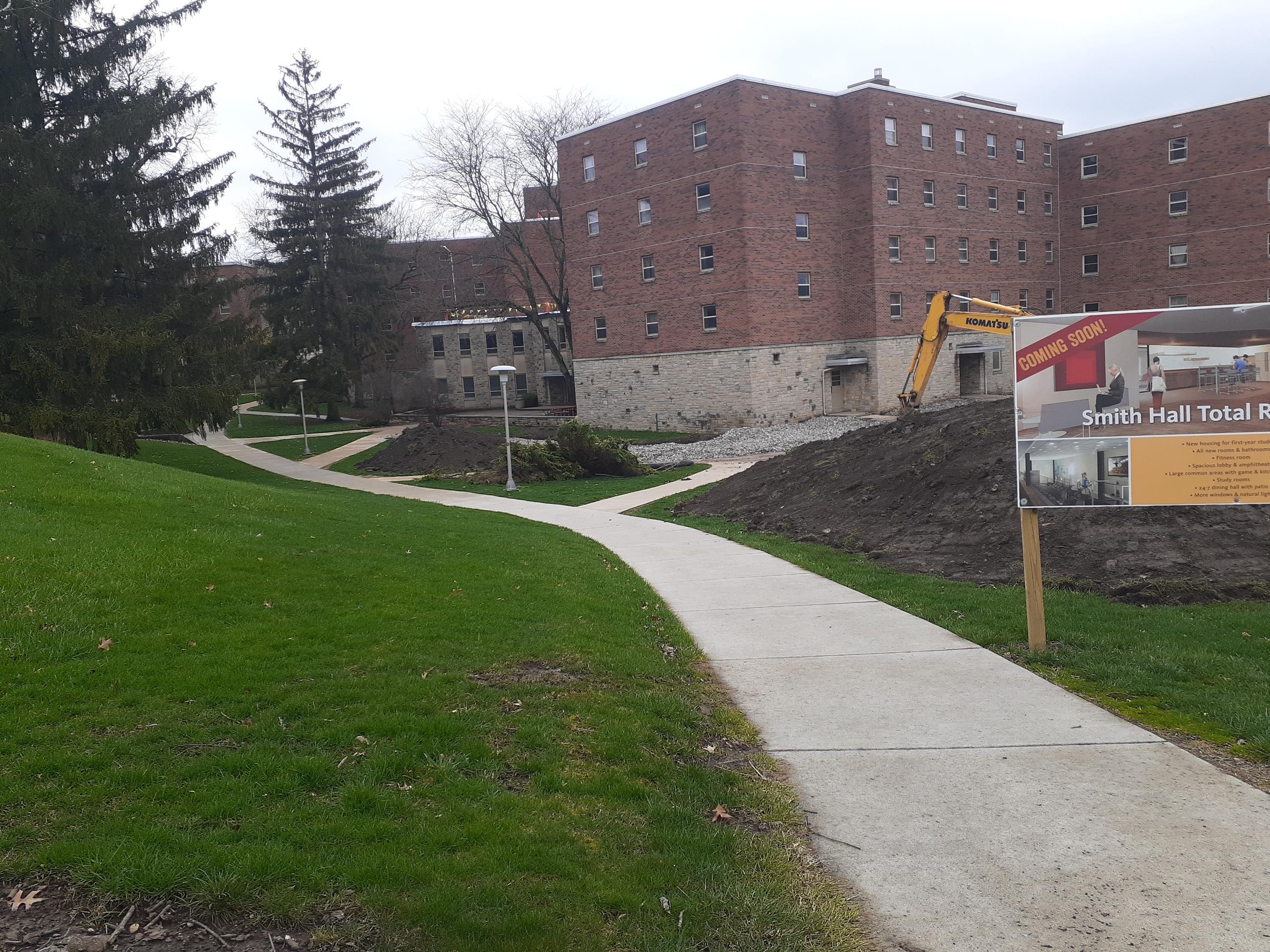By Tiffany Moore
Transcript Correspondent
tpmoore@owu.edu
During these uncertain times when everyone is staying apart from one another because of COVID-19, Ohio Wesleyan’s faculty and staff may be closer than they’ve ever been.
After OWU President Rock Jones last month canceled in-person classes in favor of remote teaching for the rest of the semester, the Information Services department and other staff had less than two weeks to train faculty to readjust, using digital tools like Blackboard, Zoom and other applications.
Many faculty found themselves entering unfamiliar territory, but they’ve been getting plenty of help. OWU set upworkshops on March 16 and 17, organized by Dale Brugh, associate provost for institutional effectiveness, Lynda Hall, associate dean for academic performance, Brian Rellinger, associate provost for academic support and others.
Ashley Biser, usually holding classes as an associate professor of politics and government, is now also leading online training for professors learning how to teach remotely.
As a way to keep track of faculty needs, the provost’s office created a survey. Biser said she’s been working with the provost to keep faculty and students informed. She primarily works behind the scenes anticipating problems and finding solutions.
Biser said while her work was not difficult, it was still a lot to teach. Some professors teach online summer courses and have been a great resource for others who are less familiar with the technology, she said.
“In general, faculty had to learn a tremendous amount about new tools in an extremely short period of time,” Biser said. “The hardest part is that we miss our students. Faculty teach at a small liberal arts college like OWU because they care about students and want to interact with them.”
Another challenge Biser faced was understanding what some faculty needed to get comfortable with remote teaching.
“Some needed assistance thinking about how to adapt their pedagogical goals to remote instruction,” she said. “Others needed more technical help in terms of how to work Blackboard Collaborate and other online tools.”
For some, teaching these tools is familiar territory.
David Soliday, an instructional technologist in OWU’s Information Services office, said that is his job under normal times.
“I really didn’t have to do much because I’ve been training faculty on how to use Blackboard for years,” Soliday said.
One area of concern has been the UC160 course in which first-year students plot their four-year connections path. But the instructor’s Facebook group was expanded to all faculty members so they can assist one another with any problems, and Soliday was added to the group to answer additional questions, he said.
Initially, Soliday said he fielded many questions, but those began to slow down once classes started.
| “The hardest part is that we miss our students. Faculty teach at a small liberal arts college like OWU because they care about students and want to interact with them.” – Ashley Biser, associate professor of politics and government |
|---|
Keeping stress as low as possible is another important factor, said Joseph Peterson, OWU’s systems technician.
Everyone is trying to collaborate during the switch to remote-learning, although a few professors have been a little frustrated at times, he said.
“Everybody has really been pitching in trying not to overwhelm us and we’re not trying to throw too much at them at one time,” Peterson said.
During a normal semester, Peterson said he works with hardware on campus requiring manual labor.
“With COVID-19, we’re trying to stay off-campus as much as we can. It’s a strange thing to have somebody whose job primarily consists of physically going to do things,” Peterson said.
He has been using Google Remote Desktop, which allows him to remotely enter a professor’s computer, with their permission, and fix any issues.
One of his more recent challenges was to help a staff member working from home set up her Virtual Private Network.
“We had to try three different ways to do it,” Peterson said, “She didn’t even have Wi-Fi at her home until a week and a half ago, so we were walking her through all that stuff.”
In a typical work day now, Peterson said he takes turns with co-worker Jason Cox managing the help desk phone. They use a program called Zendesk, which creates tickets for any request made from faculty, staff, even students.
“My typical day is catching up on emails and all the work tickets that we have,” Peterson said.
“For the most part, our staff and faculty have been very understanding how short-staffed our department has been and we recognize how stressful this is to them.”
Learning to teach remotely isn’t the only stress.
Last week, Biser sent an email to faculty to create a contingency plan in case they or someone in their family fell ill and they could not teach.
Some reacted with sadness and frustration, but others got it, Biser said.
“Faculty, too, are juggling a lot, including responsibilities to their families and the increased workload and strangeness of teaching remotely,” Biser said. “Our whole OWU community is grappling with this question of how to care for each other during difficult times.”



